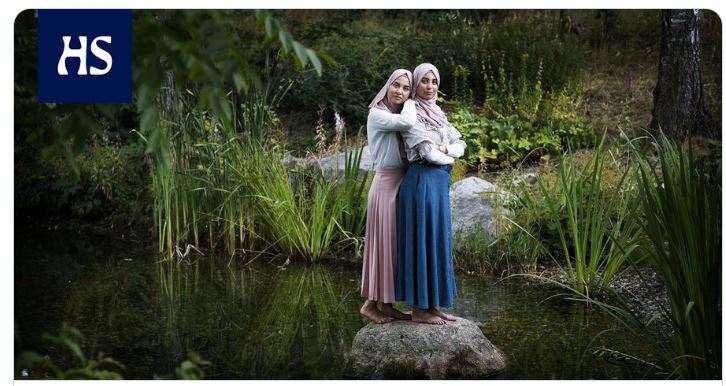“Stone Age submissive culture is accepted in 2019 in Finland … Football. Forbidden. Jeans. Forbidden. Dating. Prohibited – Young women tell how their lives in Finland are curtailed by invoking family honor”
The woman identified as “Hawa” says the reason why her parents are strict is “due to their being in Finland, wanting to strictly adhere to traditional, ethnic, religious ways to bring some sense of control to their lives”. Perhaps, but the overlying reason is due to Islam, permeating every aspect of their existence. It’s Islam that keeps them in chains. These women haven’t a chance of changing their community to accept modernity. Not a chance.
It’s Islam that deems women to be evil, and therefore then need to keep them covered and in check. It’s Islam that drives the father or male relatives to murder their female relatives if they “step out of line”. That is what Finnish politicians have brought into our midst. Medieval thinking that’s worse than what existed in Europe during that period in time.
Increase in control
Zahra and Neriman Al Take were not allowed to play football at a young age. HS met girls and women, whose lifestyles are heavily guarded, invoking family honor.
Now the Turkish sisters and many others are working to ensure that everyone in Finland has the same freedoms.
[…]
Dila is from the Middle East and moved to Finland as a child. Dila is not her real name.
“It is important for mom and dad what other people think of our family,” she says. “If someone in the family would see me somewhere late in the evening, I would start being talked evil about and spreading gossip.”
Dila’s parents have encouraged her to train and marry only after she has gained a degree. Until then, she must dwell with her parents.
Dila herself has some different wounds. She has found her boyfriend through social media, with whom she dreams of being married to. The couple will have to meet in secret. The man is from a different ethnic group, and Dila is not sure if her parents will accept him.
What would happen if Dila weren’t obeyed her parents? What if she would decide to live openly with her boyfriend?
“Oh man,” says a dazed Dila about the question.
“I don’t know what dad would do when I’ve never been in such a situation. Yes he’s intimidated me from time to time. Especially when I was young, he could say that if I did something that would affect the honor of the family, he would kill me, register himself with the police and go to prison. ”
“But I would not play with fire when I know what it is like in our culture.”
It’s not just about the father.
“There are uncles and everything… I have so many relatives here in Finland. ”
[…]
HAWA (name changed) does not remember the time before Finland. The family came here in the 1990 century, when in Somalia there was a civil war and a recession in Finland.
The large family settled in the metropolitan area. Hawa was one year old.
At a young age, she noticed that there were different rules for girls and boys. The boys dressed and moved freely, and dated.
“The idea was that boys are boys. Their reputation cannot be smeared. They cannot produce shame for the family. ”
Girls instead had to secure the honor of the family. For Hawa, it meant a wide range of restrictions: she had to wear a scarf and covered clothes. The school had to come straight home. The coffee shops or the youth house were not to be hanged out at. Spending time with friends outdoors was frowned upon. The curfews for home were strict.
Participation in the school’s swimming classes. Prohibited. Playing football. Prohibited. Dating. Prohibited.
“If there was even late outdoors or behaved too much like an ethnic Finn, we had to feel ashamed that the family’s reputation fell in the eyes of the Somali community.”
According to Hawa, her parents had lived in Somalia in a much more libertine way. There, for example, his mother or aunt did not use a hijab. In Finland, parents cling to the practices of religion and culture.
Hawa understands why parents were tough.
“They had to leave behind their own home, family and clan. When you have lost so much, you want to stick to honor, religion and reputation. It brings some sense of control to life. ”
Hawa lived a double life. From home she left with a scarf and a long skirt to the ground, but in the bag was a change of clothes. She dated and saw friends secretly. Most of them had to fear that someone in their own community sees it, because then the message would have gone home immediately.
“I had to be like two different people. It seemed very difficult when I constantly had to hide. The Finnish guys did not understand why I was doing so. ”
More in Finnish at the HS (behind paywall)

